
“Load up on supplements to burn fat”
You might need certain vitamin and mineral supplements if you’re not getting them in your diet, but they won’t magically help you lose weight. “Once a patient asked me if taking excessive amounts of vitamin E would burn fat, based on information she found on the Internet,” says registered dietitian Shannon Giese, clinical dietitian at University of Kansas Hospital. But there’s no scientific evidence behind the claim. Worse, taking unnecessary vitamins could have negative impacts on your health or be dangerous if taken with other medications. Talk to your doctor about which supplements (if any) may be appropriate for you.
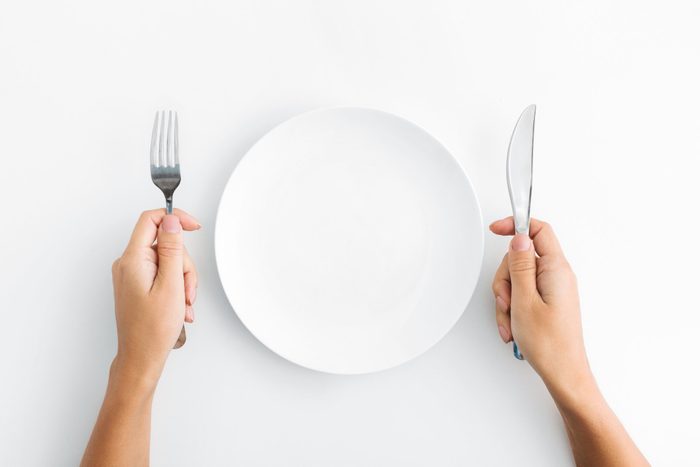
“The fewer calories, the better”
Actually, the fewer you consume, the more likely you are to overeat later. “I had one patient, a nurse, who thought a very low-calorie diet was a good idea for losing weight,” says Samantha Heller, senior clinical nutritionist at NYU Langone Medical Center and author of The Only Cleanse. “She came into my office and told me she couldn’t climb up a flight of stairs. Other people have passed out in gyms because they thought they couldn’t eat any carbohydrates.” Fasting can put you in a mental fog and causes your body to go into starvation mode, with your metabolism adjusting accordingly to conserve energy. Also, weight lost during extremely calorie-restricted diets is usually a combination of muscles, fluid, and fat—but if you overeat later out of starvation, the pounds regained are just fat.
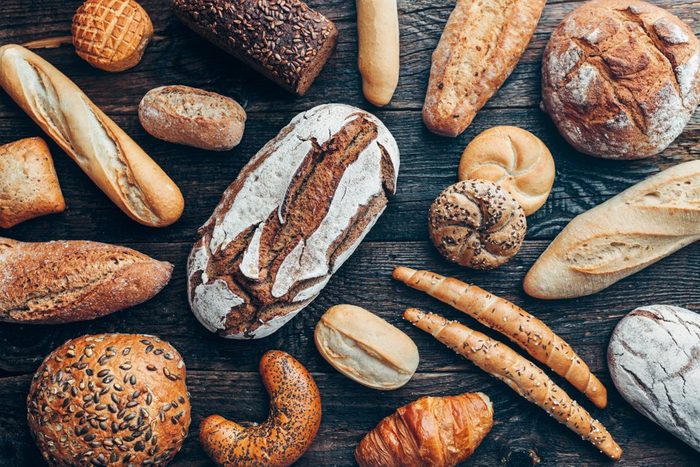
“Eliminate carbs! Or fat!”
Balance, balance, balance—it’s what nutritionists stress most. “When you eliminate either fats or carbohydrates, you’re probably eating way too much of what’s left over,” says registered dietitian Kristin Kirkpatrick, manager of wellness nutrition services at the Cleveland Clinic Wellness Institute. “If you’re on a very low-fat diet, you’ll probably eat way too many carbohydrates. This can stimulate insulin, which is a fat-storing hormone, and make it difficult to lose weight.” If you cut out all carbs, you may overeat other food groups, feel sluggish, or become constipated. “You can modify an entire food group, but you can’t take it away,” adds Kirkpatrick. For example: Instead of cutting carbs out completely, have one carbohydrate at each meal that is a whole grain (like a corn tortilla or whole-grain bread). Rather than cutting out fat, opt for low-fat dairies and lean meats. (Here are the best meats to eat.)
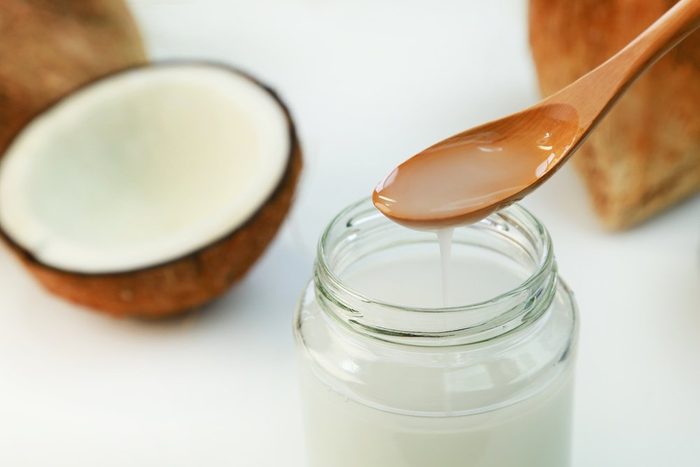
“A daily tablespoon of coconut oil helps shed pounds”
Save it for cooking, or one of these beauty uses for coconut oil. “People eat tablespoons of coconut oil, thinking it’s a miracle cure for disease or weight loss,” says Heller. “Not only is there no science to support that, but coconut oil is saturated fat. As far as we know, it has very similar effects of other saturated fats like lard.” One tablespoon of coconut oil has 12 grams of saturated fat and 117 calories. Coconut oil does have antioxidants, which may help reduce the risk of disease, but you’re better off getting antioxidants from vegetables, fruits, and whole grains. (Read about why a Harvard professor calls coconut oil pure poison.)
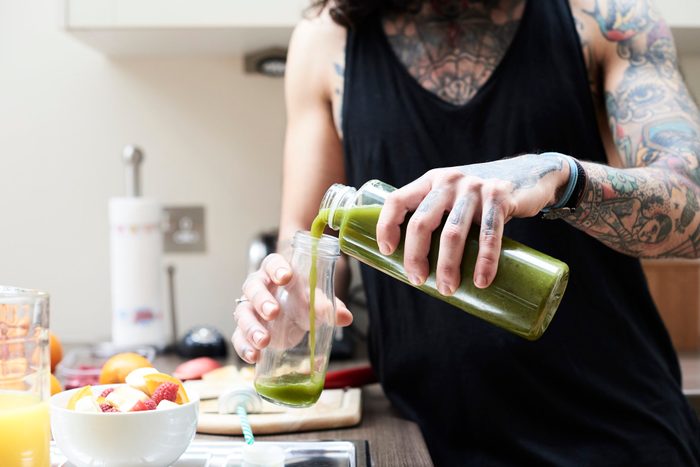
“Detox to lose weight fast”
Your body cleanses itself 24 hours a day. “There is no current scientific evidence that suggests juicing, special herbal blends, or other ‘detoxes’ cleanse the body of anything,” says Heller. If you want to get back on track after, say, an indulgent vacation, keep a food diary. “It sounds simple, but it makes us more mindful so we don’t keep up the ‘fun’ eating we experienced on vacation,” adds Heller. (Here are cleansing foods that detox your body naturally.)
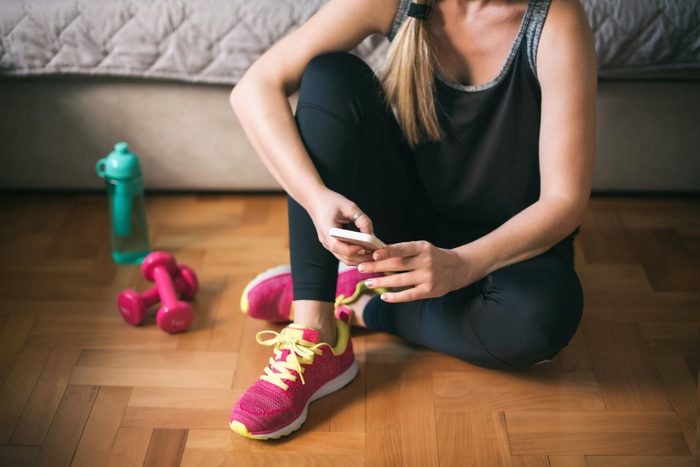
“Use an app to balance exercise with diet”
You broke a sweat at the gym—congrats! But that doesn’t mean you can feast with abandon, even if your smartphone says you can. Apps that calculate how many calories you can consume based on your physical activity may cause you to overeat. “Apps can sometimes report more calories than you actually burned, and people will say, ‘Yes, I exercised today so now I can have whatever I want,’” says Kirkpatrick. “I tell clients not to track exercise on apps. When people stop tracking the exercise, they start losing weight.”
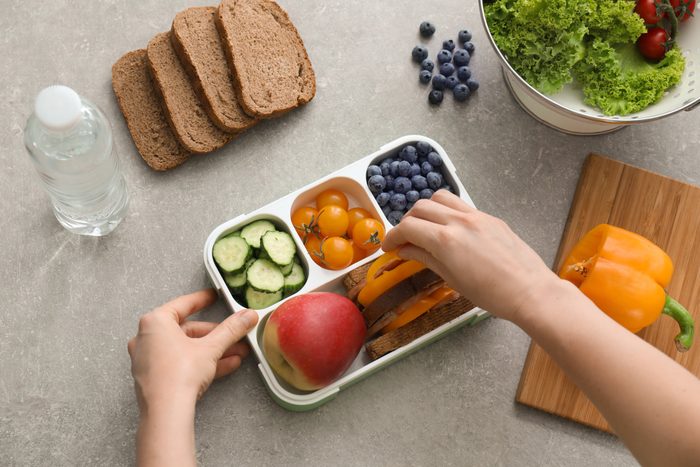
“Eat six small meals a day”
This may not be a bad idea, based on your lifestyle and your doctor’s recommendations. Small meals throughout the day are sometimes recommended to help keep blood sugar and hunger levels stable. However, one Canadian study in the British Journal of Nutrition found that splitting a low-calorie diet into six meals rather than three had no effect on weight loss, and related research shows eating six meals a day may actually make you want to eat more. One big reason: What defines ‘small’ varies from person to person. “Sometimes when you give this advice to people, and don’t go through what’s defined as small, it can quickly turn into bad advice,” says Kirkpatrick. (Here’s what healthy food portions actually look like.)

“Have this food every day”
Two words to nix from your vocabulary: cabbage soup. Any diet that puts an excess focus on one food—like cabbage soup or even grapefruit with every meal—is likely lacking in vitamins and minerals. “You’re cutting out a lot of different nutrients that other foods can offer,” says Giese. “Plus, eating plays an important role in your daily life. These diets can become repetitious and dull, and you want to enjoy your meal plan so you can stick with it.” (Check out other food mistakes healthy people make.)
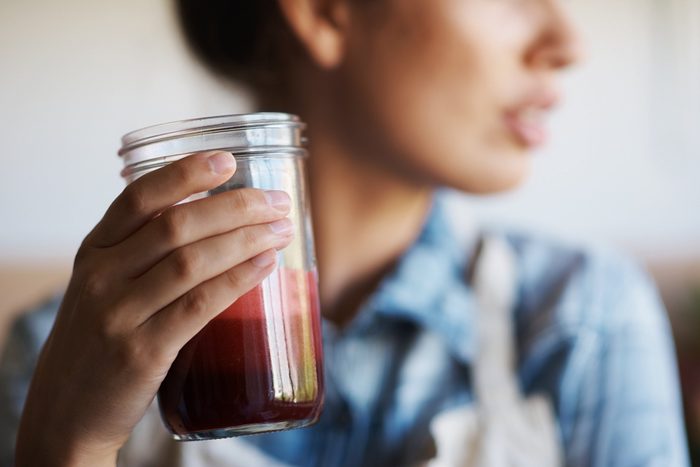
“Swap meals with juice to lose weight”
That juice is probably loaded with sugar and might leave you hungry, causing you to overeat later. “Juice is one of the most worthless foods on the face of the Earth,” says Kirkpatrick. “There’s really no benefit to it, it is high in sugar, and there’s a benefit to eating and chewing your calories.” One study published in the Journal of the Academy of Nutrition and Dietetics found participants ate about 10 percent less food (corresponding to 70 fewer calories) when they increased chews by 50 percent. By doubling their chewing, they consumed 15 percent less food and 112 fewer calories.
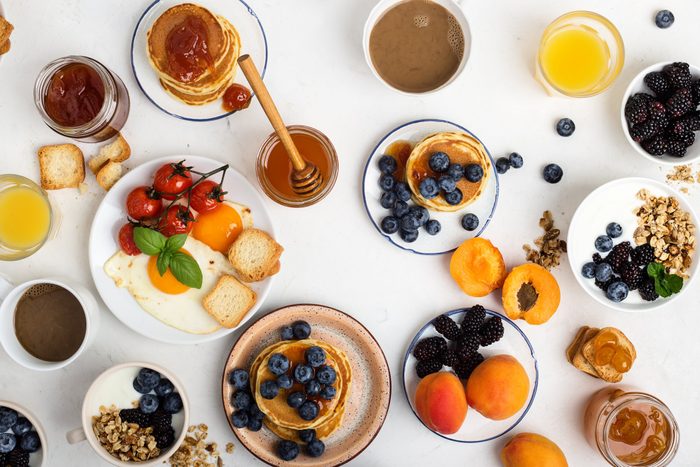
“A big breakfast is important”
Breakfast may fuel you for the day, but it’s possible to over-fuel. “Typically when you tell people to have a huge breakfast, it includes a lot of carbohydrates,” says Kirkpatrick. “Plus, it’s just not great advice to eat a huge amount of anything.” Instead, opt for a regular-sized breakfast with a good source of protein (important for resisting cravings later in the day), such as Greek yogurt or an egg and bean breakfast burrito.
Next, check out the 50 surprisingly unhealthy foods at the grocery store.
